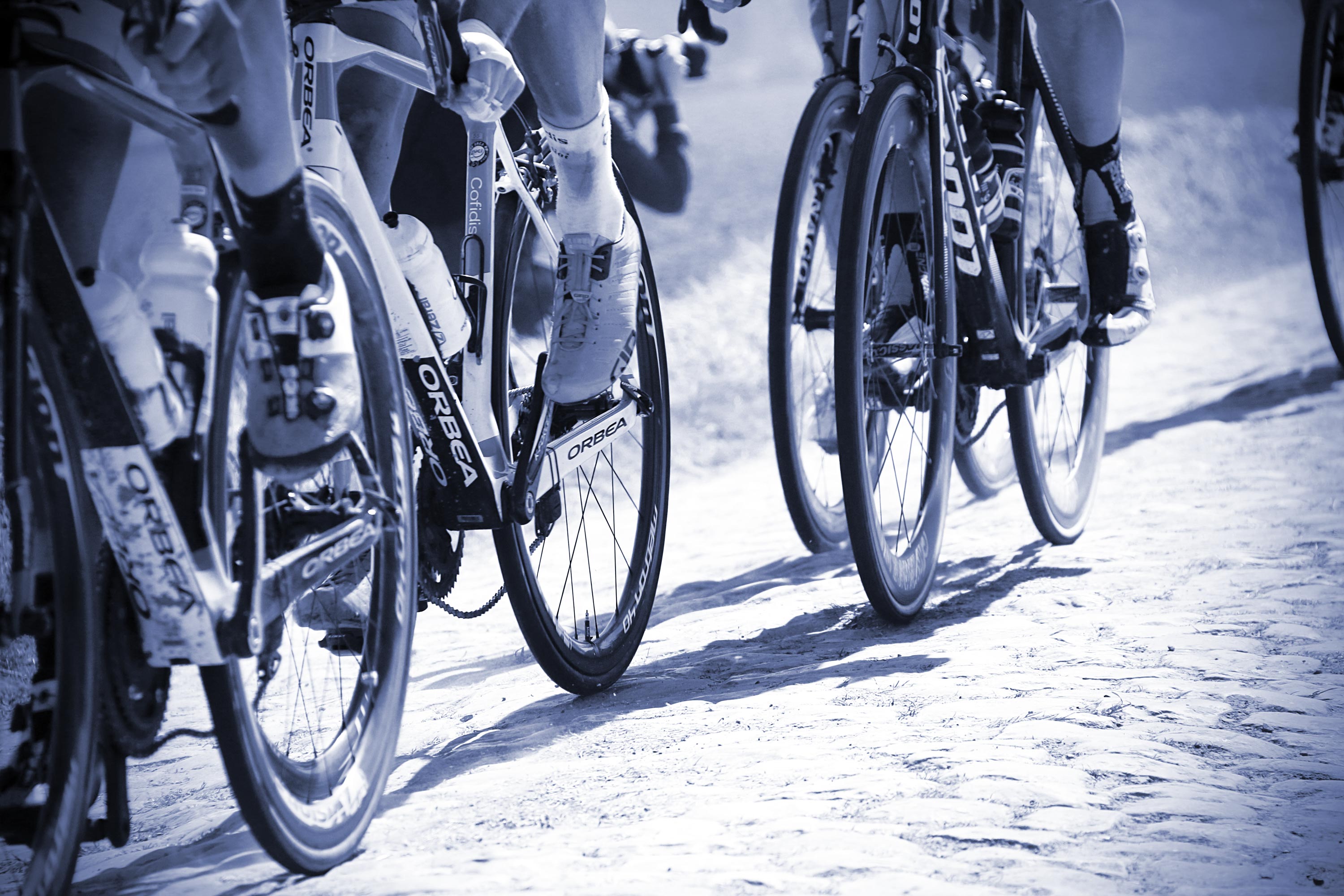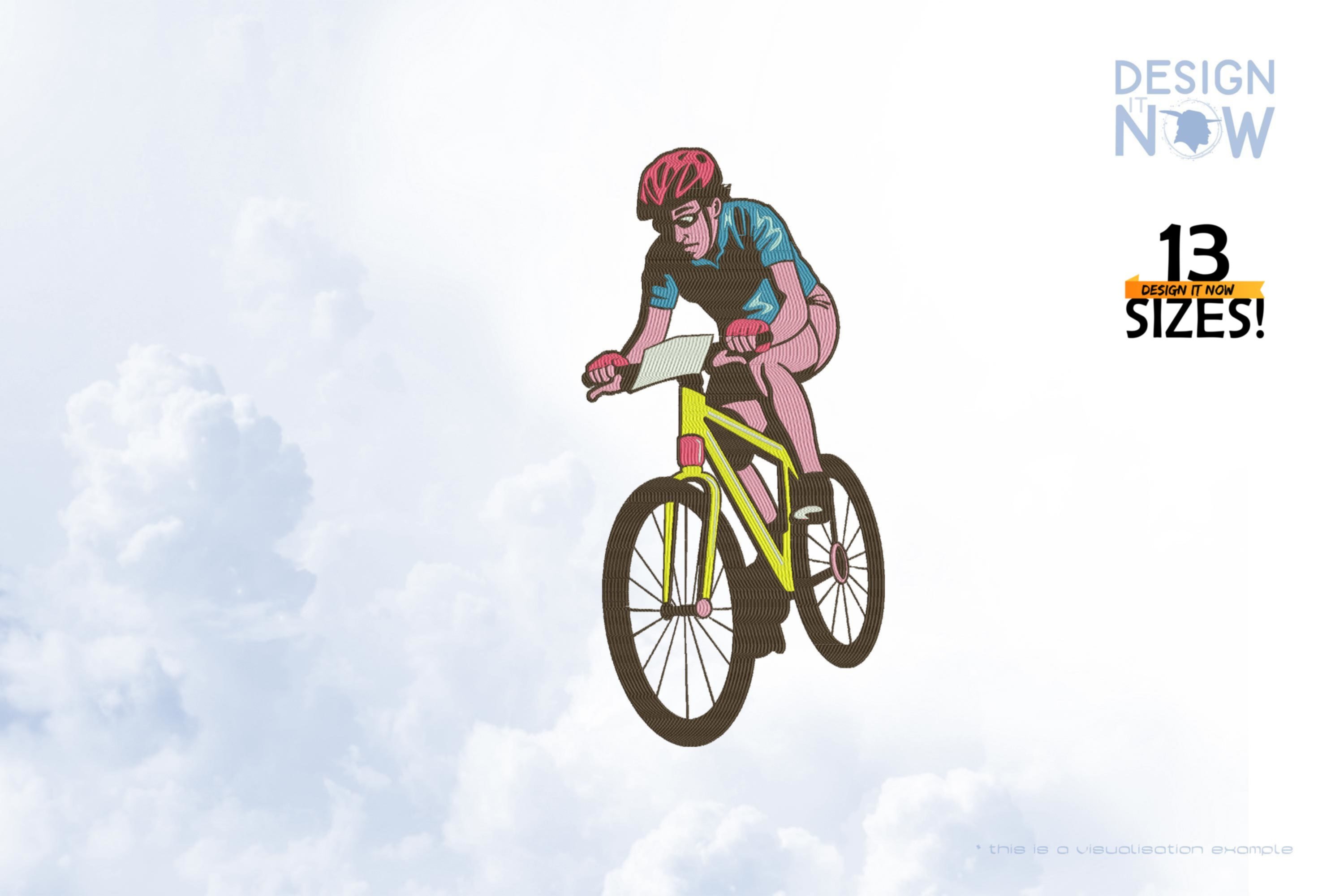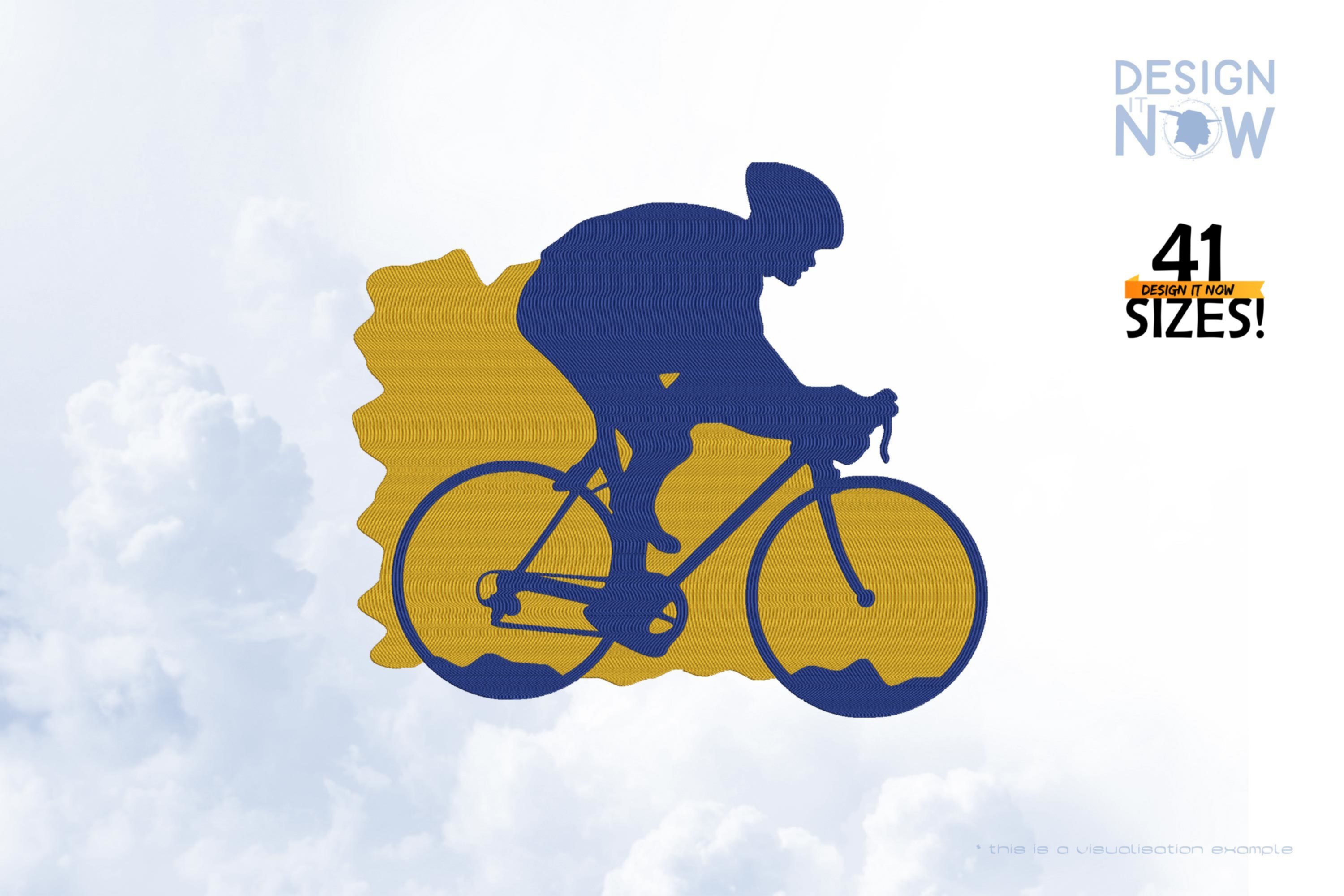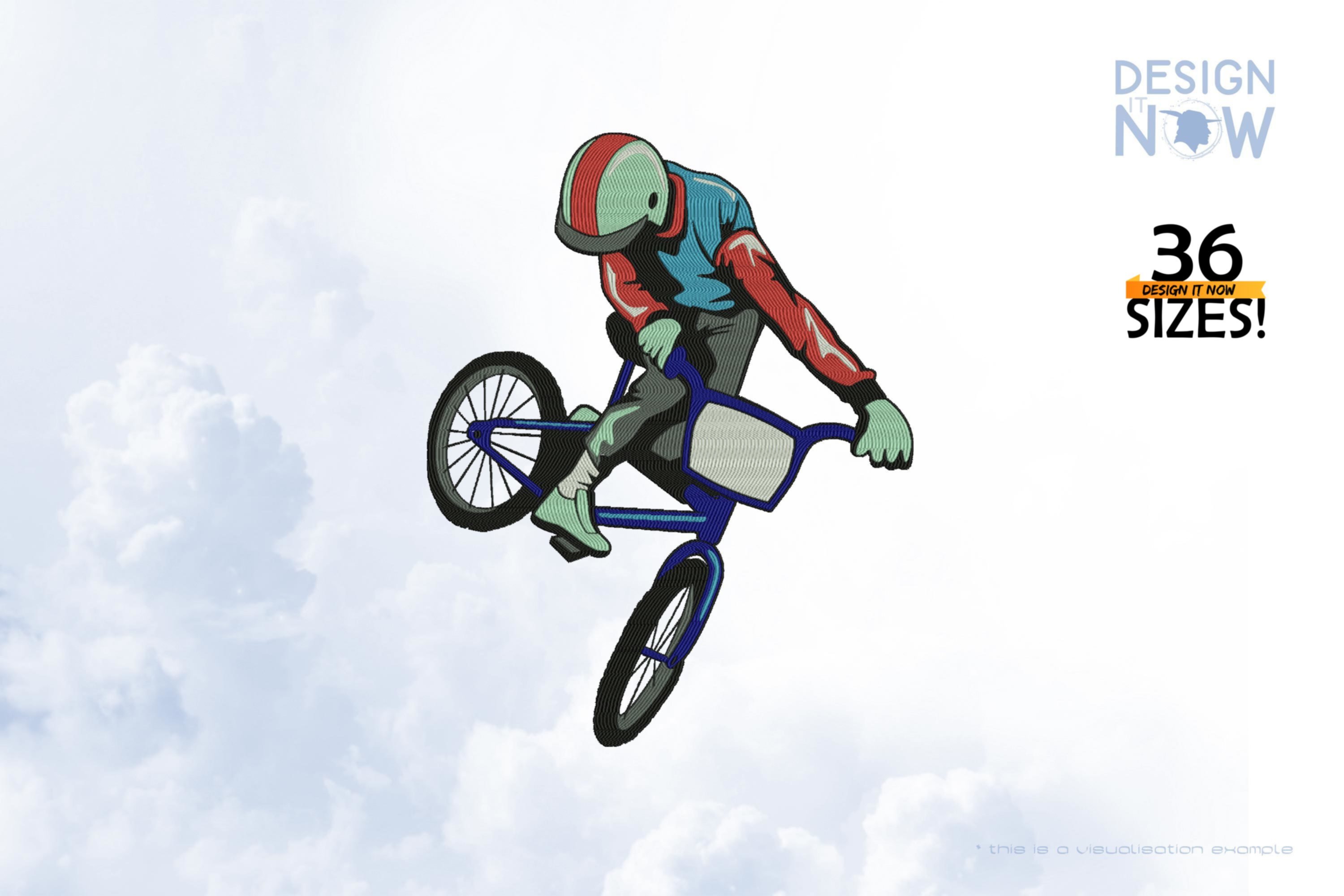
BICYCLES
A bicycle, short wheel, in Switzerland velo (from French le velo, short form for velocipede: fast foot; Latin velox: fast and pes: foot), is an at least two-wheeled, usually single-track land vehicle, which is driven exclusively by the muscle power of persons on it by pedaling or hand cranks. Due to the caster, a torque is generated during a steering deflection, which is directed against this as a restoring torque. As a result, the rolling vehicle steers itself back to (almost) straight ahead. The gyroscopic forces additionally stabilize the bicycle during travel depending on the moment of inertia and the speed.
In addition, other factors such as mass distribution have an influence on the driving stability of single-track vehicles. A unicycle has only one wheel, over which all tipping directions must be balanced. The tandem bike is a special form that allows two or more people to have their own seat and use their own muscle power. Special forms such as tricycles for children or senior citizens and three-wheeled recumbent bicycles have three wheels and are thus two-wheeled.
Bicycle rickshaws (such as bicycle cabs) can be either three-wheeled or four-wheeled (two-lane). Another special type is experimental bicycles, which have a variety of running wheels or other muscle-powered forms of propulsion. There are specific legal regulations for the use of a bicycle on public roads in each country. Bicycles are also used for operational purposes. Areas of use for company bicycles include industry, delivery people, government agencies (police, ambulance service), and service (mobile services, e.g., elderly care). Other designations are: Company bicycle, industrial bicycle, service bicycle.
In addition, other factors such as mass distribution have an influence on the driving stability of single-track vehicles. A unicycle has only one wheel, over which all tipping directions must be balanced. The tandem bike is a special form that allows two or more people to have their own seat and use their own muscle power. Special forms such as tricycles for children or senior citizens and three-wheeled recumbent bicycles have three wheels and are thus two-wheeled.
Bicycle rickshaws (such as bicycle cabs) can be either three-wheeled or four-wheeled (two-lane). Another special type is experimental bicycles, which have a variety of running wheels or other muscle-powered forms of propulsion. There are specific legal regulations for the use of a bicycle on public roads in each country. Bicycles are also used for operational purposes. Areas of use for company bicycles include industry, delivery people, government agencies (police, ambulance service), and service (mobile services, e.g., elderly care). Other designations are: Company bicycle, industrial bicycle, service bicycle.
%
Bike
A bicycle is an at least two-wheeled, usually single-track land vehicle that is propelled solely by the muscular power of persons on it by pedaling or hand cranking. Due to the caster, a torque is generated during a steering deflection, which is directed against this as a restoring torque. As a result, the rolling vehicle steers itself back to (almost) straight ahead. The gyroscopic forces additionally stabilize the bicycle during travel depending on the moment of inertia and the speed. In addition, other factors such as mass distribution have an influence on the driving stability of single-track vehicles. A unicycle has only one wheel, over which all tipping directions must be balanced. The tandem bike is a special form that allows two or more people to have their own seat and use their own muscle power. Special forms such as tricycles for children or senior citizens and three-wheeled recumbent bicycles have three wheels and are thus three-lane. Bicycle rickshaws (such as bicycle cabs) can be either three-wheeled or four-wheeled (two-lane). Another special type is experimental bicycles, which have a variety of running wheels or other muscle-powered forms of propulsion. There are specific legal regulations for the use of a bicycle on public roads in each country.Product Number: N07447Product Name: BikeSportsThis design comes with the following sizes:Size: 4.61"(w) X 9.13"(h) (117.0mm X 231.8mm) Size: 4.77"(w) X 9.46"(h) (121.2mm X 240.2mm) Size: 4.92"(w) X 9.76"(h) (125.0mm X 247.8mm) Size: 5.17"(w) X 10.23"(h) (131.2mm X 259.8mm) Size: 5.20"(w) X 10.31"(h) (132.2mm X 261.8mm) Size: 5.34"(w) X 10.57"(h) (135.6mm X 268.4mm) Size: 5.40"(w) X 10.68"(h) (137.2mm X 271.2mm) Size: 5.47"(w) X 10.83"(h) (139.0mm X 275.0mm) Size: 5.62"(w) X 11.12"(h) (142.8mm X 282.4mm) Size: 5.68"(w) X 11.24"(h) (144.2mm X 285.4mm) Size: 6.14"(w) X 12.17"(h) (156.0mm X 309.0mm) Size: 6.18"(w) X 12.24"(h) (157.0mm X 310.8mm) Size: 6.74"(w) X 13.35"(h) (171.2mm X 339.0mm)The following formats are included in the file you will receive: .DST .EXP .JEF .PES .VP3 .XXX .PEC .U01You MUST have an embroidery machine and the software needed to transfer it from your computer to the machine to use this file. This listing is for the machine file only - not a finished item.Bicycle Machine Embroidery Design, Bike Embroidery Pattern, Vehicle Embroidery Art, Sport DIY Project Idea, Original Digital Supplies For Embroidery Machines, Artsupplies For Handmade Embroidery Projects, Quality Embroidery Digitizing
US$1.10* US$4.40* (75% saved)
%
Bike Sport
A bicycle is an at least two-wheeled, usually single-track land vehicle that is propelled solely by the muscular power of persons on it by pedaling or hand cranking. Due to the caster, a torque is generated during a steering deflection, which is directed against this as a restoring torque. As a result, the rolling vehicle steers itself back to (almost) straight ahead. The gyroscopic forces additionally stabilize the bicycle during travel depending on the moment of inertia and the speed. In addition, other factors such as mass distribution have an influence on the driving stability of single-track vehicles. A unicycle has only one wheel, over which all tipping directions must be balanced. The tandem bike is a special form that allows two or more people to have their own seat and use their own muscle power. Special forms such as tricycles for children or senior citizens and three-wheeled recumbent bicycles have three wheels and are thus three-lane. Bicycle rickshaws (such as bicycle cabs) can be either three-wheeled or four-wheeled (two-lane). Another special type is experimental bicycles, which have a variety of running wheels or other muscle-powered forms of propulsion. There are specific legal regulations for the use of a bicycle on public roads in each country.Product Number: N10803Product Name: bike-sportThis design comes with the following sizes:Size: 2.94"(w) X 2.57"(h) (74.8mm X 65.4mm) Size: 2.98"(w) X 2.61"(h) (75.8mm X 66.4mm) Size: 5.27"(w) X 4.61"(h) (133.8mm X 117.0mm) Size: 5.46"(w) X 4.78"(h) (138.8mm X 121.4mm) Size: 5.50"(w) X 4.82"(h) (139.8mm X 122.4mm) Size: 5.54"(w) X 4.85"(h) (140.6mm X 123.2mm) Size: 5.74"(w) X 5.02"(h) (145.8mm X 127.6mm) Size: 5.78"(w) X 5.06"(h) (146.8mm X 128.4mm) Size: 5.82"(w) X 5.09"(h) (147.8mm X 129.4mm) Size: 5.90"(w) X 5.16"(h) (149.8mm X 131.0mm) Size: 6.02"(w) X 5.27"(h) (152.8mm X 133.8mm) Size: 6.09"(w) X 5.33"(h) (154.8mm X 135.4mm) Size: 6.21"(w) X 5.43"(h) (157.8mm X 138.0mm) Size: 6.25"(w) X 5.47"(h) (158.8mm X 139.0mm) Size: 6.37"(w) X 5.57"(h) (161.8mm X 141.6mm) Size: 6.41"(w) X 5.61"(h) (162.8mm X 142.4mm) Size: 6.49"(w) X 5.68"(h) (164.8mm X 144.2mm) Size: 6.53"(w) X 5.71"(h) (165.8mm X 145.0mm) Size: 6.61"(w) X 5.78"(h) (167.8mm X 146.8mm) Size: 6.65"(w) X 5.82"(h) (168.8mm X 147.8mm) Size: 6.88"(w) X 6.02"(h) (174.8mm X 153.0mm) Size: 7.28"(w) X 6.37"(h) (184.8mm X 161.8mm) Size: 7.43"(w) X 6.50"(h) (188.8mm X 165.2mm) Size: 7.62"(w) X 6.68"(h) (193.6mm X 169.6mm) Size: 10.02"(w) X 8.78"(h) (254.6mm X 223.0mm) Size: 10.14"(w) X 8.88"(h) (257.6mm X 225.6mm) Size: 10.65"(w) X 9.33"(h) (270.6mm X 237.0mm) Size: 10.85"(w) X 9.50"(h) (275.6mm X 241.4mm) Size: 10.93"(w) X 9.57"(h) (277.6mm X 243.0mm) Size: 11.20"(w) X 9.81"(h) (284.6mm X 249.2mm) Size: 11.48"(w) X 10.06"(h) (291.6mm X 255.4mm) Size: 11.72"(w) X 10.26"(h) (297.8mm X 260.6mm) Size: 11.76"(w) X 10.29"(h) (298.6mm X 261.4mm) Size: 11.80"(w) X 10.33"(h) (299.6mm X 262.4mm) Size: 11.91"(w) X 10.43"(h) (302.6mm X 265.0mm) Size: 12.58"(w) X 11.02"(h) (319.6mm X 279.8mm) Size: 12.74"(w) X 11.16"(h) (323.6mm X 283.4mm) Size: 12.90"(w) X 11.29"(h) (327.6mm X 286.8mm) Size: 13.41"(w) X 11.74"(h) (340.6mm X 298.2mm) Size: 13.76"(w) X 12.06"(h) (349.6mm X 306.2mm) Size: 14.16"(w) X 12.39"(h) (359.6mm X 314.8mm)The following formats are included in the file you will receive: .DST .EXP .JEF .PES .VP3 .XXX .PEC .U01You MUST have an embroidery machine and the software needed to transfer it from your computer to the machine to use this file. This listing is for the machine file only - not a finished item.Bicycle Machine Embroidery Design, Bike Embroidery Pattern, Vehicle Embroidery Art, Sport DIY Project Idea, Original Digital Supplies For Embroidery Machines, Artsupplies For Handmade Embroidery Projects, Quality Embroidery Digitizing
US$1.10* US$4.40* (75% saved)
%
Bike
A bicycle is an at least two-wheeled, usually single-track land vehicle that is propelled solely by the muscular power of persons on it by pedaling or hand cranking. Due to the caster, a torque is generated during a steering deflection, which is directed against this as a restoring torque. As a result, the rolling vehicle steers itself back to (almost) straight ahead. The gyroscopic forces additionally stabilize the bicycle during travel depending on the moment of inertia and the speed. In addition, other factors such as mass distribution have an influence on the driving stability of single-track vehicles. A unicycle has only one wheel, over which all tipping directions must be balanced. The tandem bike is a special form that allows two or more people to have their own seat and use their own muscle power. Special forms such as tricycles for children or senior citizens and three-wheeled recumbent bicycles have three wheels and are thus three-lane. Bicycle rickshaws (such as bicycle cabs) can be either three-wheeled or four-wheeled (two-lane). Another special type is experimental bicycles, which have a variety of running wheels or other muscle-powered forms of propulsion. There are specific legal regulations for the use of a bicycle on public roads in each country.Product Number: N10608Product Name: ExtremeBikeSportThis design comes with the following sizes:Size: 6.41"(w) X 8.10"(h) (162.8mm X 205.8mm) Size: 6.50"(w) X 8.22"(h) (165.2mm X 208.8mm) Size: 6.54"(w) X 8.26"(h) (166.0mm X 209.8mm) Size: 6.63"(w) X 8.38"(h) (168.4mm X 212.8mm) Size: 6.65"(w) X 8.41"(h) (169.0mm X 213.6mm) Size: 6.81"(w) X 8.61"(h) (173.0mm X 218.8mm) Size: 6.97"(w) X 8.81"(h) (177.0mm X 223.8mm) Size: 7.00"(w) X 8.84"(h) (177.8mm X 224.6mm) Size: 7.16"(w) X 9.05"(h) (181.8mm X 229.8mm) Size: 7.31"(w) X 9.24"(h) (185.8mm X 234.8mm) Size: 7.53"(w) X 9.52"(h) (191.2mm X 241.8mm) Size: 7.62"(w) X 9.64"(h) (193.6mm X 244.8mm) Size: 7.75"(w) X 9.79"(h) (196.8mm X 248.6mm) Size: 7.84"(w) X 9.91"(h) (199.2mm X 251.8mm) Size: 7.91"(w) X 9.99"(h) (200.8mm X 253.8mm) Size: 8.06"(w) X 10.18"(h) (204.6mm X 258.6mm) Size: 8.18"(w) X 10.34"(h) (207.8mm X 262.6mm) Size: 8.28"(w) X 10.46"(h) (210.2mm X 265.8mm) Size: 8.31"(w) X 10.50"(h) (211.0mm X 266.8mm) Size: 8.59"(w) X 10.86"(h) (218.2mm X 275.8mm) Size: 8.65"(w) X 10.94"(h) (219.8mm X 277.8mm) Size: 8.83"(w) X 11.17"(h) (224.4mm X 283.6mm) Size: 9.02"(w) X 11.41"(h) (229.2mm X 289.8mm) Size: 9.09"(w) X 11.48"(h) (230.8mm X 291.6mm) Size: 9.31"(w) X 11.76"(h) (236.4mm X 298.8mm) Size: 9.43"(w) X 11.91"(h) (239.4mm X 302.6mm) Size: 9.55"(w) X 12.07"(h) (242.6mm X 306.6mm) Size: 9.74"(w) X 12.31"(h) (247.4mm X 312.8mm) Size: 9.80"(w) X 12.39"(h) (249.0mm X 314.6mm) Size: 9.90"(w) X 12.50"(h) (251.4mm X 317.6mm) Size: 10.09"(w) X 12.75"(h) (256.2mm X 323.8mm) Size: 10.30"(w) X 13.02"(h) (261.6mm X 330.6mm) Size: 10.46"(w) X 13.22"(h) (265.6mm X 335.8mm) Size: 10.61"(w) X 13.41"(h) (269.6mm X 340.6mm) Size: 10.71"(w) X 13.53"(h) (272.0mm X 343.6mm) Size: 10.80"(w) X 13.65"(h) (274.4mm X 346.8mm)The following formats are included in the file you will receive: .DST .EXP .JEF .PES .VP3 .XXX .PEC .U01You MUST have an embroidery machine and the software needed to transfer it from your computer to the machine to use this file. This listing is for the machine file only - not a finished item.Bicycle Machine Embroidery Design, Bike Embroidery Pattern, Vehicle Embroidery Art, Sport DIY Project Idea, Original Digital Supplies For Embroidery Machines, Artsupplies For Handmade Embroidery Projects, Quality Embroidery Digitizing
US$1.10* US$4.40* (75% saved)






